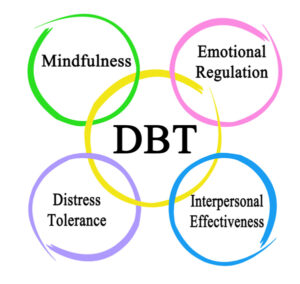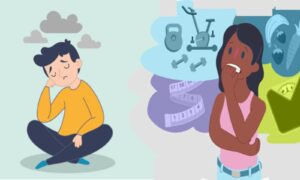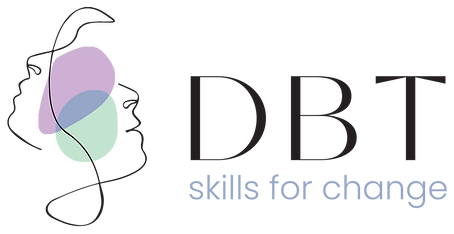Do you feel like you are constantly at war with food? Do you feel like you can never quite seem to win that battle? If so, then you may be struggling with an eating disorder. Eating disorders can be incredibly damaging and destructive, but they can also be treated. In this blog post, we will discuss the basics of DBT for eating disorders. We will talk about what DBT is, how it works, and why it can be so effective in treating eating disorders. If you are ready to overcome your struggles with food, then DBT may be the right treatment for you!
Contents
What Is Dialectical Behavior Therapy?
 Over the years, there have been multiple approaches to treating eating disorders. However, one of the most effective approaches is dialectical behavior therapy (DBT). DBT is a type of cognitive-behavioral therapy that was specifically designed for treating borderline personality disorder. However, it has also been found to be incredibly effective in treating other mental health conditions. It comprises four main elements:
Over the years, there have been multiple approaches to treating eating disorders. However, one of the most effective approaches is dialectical behavior therapy (DBT). DBT is a type of cognitive-behavioral therapy that was specifically designed for treating borderline personality disorder. However, it has also been found to be incredibly effective in treating other mental health conditions. It comprises four main elements:
- Mindfulness: Learning to be present at the moment and accepting things as they are.
- Distress Tolerance: Learning to cope with difficult situations in a healthy way.
- Emotion Regulation: Learning how to manage and control emotions in a healthy way.
- Interpersonal Effectiveness: Learning how to effectively communicate and interact with others.
These four elements are the core of DBT. They are designed to help people suffering from eating disorders learn how to cope with their emotions and thoughts in a healthy way.
How Does DBT Help With Eating Disorders?
Now that we know more about DBT as a therapy approach, let us learn how it can help with eating disorders specifically. Eating disorders can be particularly complex and difficult to treat. This is why it is important to understand the exact mechanisms of how treatments work. Let us understand the working of DBT for eating disorder by focusing on each of the four core components:
Mindfulness
 One of the main goals of DBT is to help people become more aware of their thoughts and emotions. This can be incredibly helpful for people suffering from eating disorders. Oftentimes, people with eating disorders are so focused on food and their bodies that they do not take the time to focus on anything else. By learning to be mindful, they can start to pay attention to their thoughts and emotions. This can help them better understand why they are struggling with food. Some of the techniques within mindfulness that can be helpful for people with eating disorders include:
One of the main goals of DBT is to help people become more aware of their thoughts and emotions. This can be incredibly helpful for people suffering from eating disorders. Oftentimes, people with eating disorders are so focused on food and their bodies that they do not take the time to focus on anything else. By learning to be mindful, they can start to pay attention to their thoughts and emotions. This can help them better understand why they are struggling with food. Some of the techniques within mindfulness that can be helpful for people with eating disorders include:
• Focusing on the present moment: This can help people suffering from eating disorders become more aware of their thoughts and emotions. It can also help them to better understand their triggers and how to cope with them.
• Accepting things as they are: People with eating disorders often strive for perfection. They may feel like they need to be a certain weight or look a certain way in order to be happy. However, this is not the case. It is important to accept yourself as you are. This can be a difficult task, but it is an important part of recovery.
Distress Tolerance
Another goal of DBT is to help people learn how to cope with difficult situations. It is no secret that life can be tough and sometimes we need help to get through it. That is where the concept of distress tolerance comes in. For people with eating disorders, this component of DBT can be essential in helping them overcome their struggles with food. There are four main skills that are taught in distress tolerance:
- Radical Acceptance: This means accepting things as they are, even if they are not what you want them to be. It can be hard to do this, but it is important to remember that not everything in life is going to be perfect.
- Distraction: This involves finding ways to distract yourself from whatever is causing you distress. This can be done through activities such as reading, watching TV, or spending time with friends and family.
- Self-Soothing: This means finding ways to comfort yourself when you are feeling upset. This can involve things like taking a bath, listening to music, or eating your favorite food.
- Improving the Moment: This means finding ways to make the current moment more tolerable. This can involve things like going for a walk, calling a friend, or doing something you enjoy.
Emotion Regulation
 The third component of DBT is emotion regulation. This refers to the ability to manage and control emotions in a healthy way. For people with eating disorders, this can be an essential skill. Oftentimes, people with eating disorders will turn to food as a way to cope with their emotions. However, this is not a healthy coping mechanism. Instead, it can lead to further problems down the road. Some of the skills that are taught in emotion regulation include:
The third component of DBT is emotion regulation. This refers to the ability to manage and control emotions in a healthy way. For people with eating disorders, this can be an essential skill. Oftentimes, people with eating disorders will turn to food as a way to cope with their emotions. However, this is not a healthy coping mechanism. Instead, it can lead to further problems down the road. Some of the skills that are taught in emotion regulation include:
• Identifying and labeling emotions: This can be helpful in understanding why you are feeling a certain way. It can also help you to better cope with your emotions.
• Refraining from judgment: It is important to remember that emotions are not good or bad. They are just emotions. By refraining from judgment, you can better understand and accept your emotions.
• Accepting emotions: This means that you do not try to fight your emotions or make them go away. Instead, you accept them for what they are and allow yourself to feel them.
• Regulating emotions: This involves finding healthy ways to cope with your emotions. This can involve things like exercise, journaling, or talking to a therapist.
Interpersonal Effectiveness
The fourth and final component of DBT is interpersonal effectiveness. This refers to the ability to effectively communicate with others and manage relationships. For people with eating disorders, this can be an important skill to learn. Oftentimes, people with eating disorders will isolate themselves from others. However, this is not healthy. It is important to learn how to communicate with others and build healthy relationships. Some of the skills that are taught in interpersonal effectiveness include:
• Assertiveness: This means being able to express your needs and wants in a clear and concise way.
• Empathy: This means being able to understand how someone else is feeling. This can be helpful in building relationships with others.
• Flexibility: This means being willing to compromise and adapt to changing situations.
• Self-respect: This means having a positive opinion of yourself and valuing your own needs and wants.
DBT for eating disorders can be an extremely helpful tool. It can help you to overcome your struggles with food and develop healthy coping mechanisms. If you or someone you know is struggling with an eating disorder, please seek professional help.
What Are The Advantages?
After knowing all the details about DBT for eating disorders, it is normal to be curious about its advantages. Here are some reasons why this therapy can be effective.
• Help you to understand your emotions and develop healthy coping mechanisms
• Build healthy relationships with others
• Improve communication skills
• Increase self-esteem and self-respect
• Foster a positive outlook on life
If you are struggling with an eating disorder, please seek professional help. DBT could be the key to overcoming your struggles and developing a healthy relationship with food.
What Are The Drawbacks?
Like any other treatment, DBT for eating disorders also carry some drawbacks. Here are some disadvantages of this therapy.
- It is not a quick fix and requires a lot of time and effort
- Not all insurance plans cover DBT
- It can be difficult to find a qualified therapist
DBT for eating disorders is not a quick fix. It requires time, effort, and commitment. With the pros and cons in mind, one can decide whether or not it is the right treatment for them.
Are There Any Alternatives?
Of course, DBT is not the only treatment available for eating disorders. There are many other options out there. Here are some alternative treatments for eating disorders.
• Cognitive Behavioral Therapy (CBT): CBT is a type of therapy that focuses on changing negative thoughts and behaviors. It can be an effective treatment for eating disorders.
• Family-Based Treatment (FBT): FBT is a type of therapy that focuses on the family. It can be helpful in treating eating disorders.
• Medication: Medication can be used to treat the symptoms of eating disorders.
• Nutritional Counseling: Nutritional counseling can help people with eating disorders develop healthy eating habits.
There are many different treatment options available for eating disorders. It is important to talk to a professional to find the right treatment for you.
Conclusion
Conclusively, we can say that DBT for eating disorders can be an effective treatment option. It can help you to understand your emotions, develop healthy coping mechanisms, and build healthy relationships with others. However, it is not a quick fix and requires time, effort, and commitment. If you are struggling with an eating disorder, please seek professional help.
If you or someone you know is looking for psychological help, Therapy Mantra is here for you. We are the leading providers of online therapy and counseling. Our team of highly trained and experienced therapists can provide assistance at the most affordable rates. We also have a team of nutritionists providing nutritional counseling to manage food-related problems. Contact us today to learn more about our services. You may also visit our website to book an online therapy session or download our free Android or iOS app for more information.


